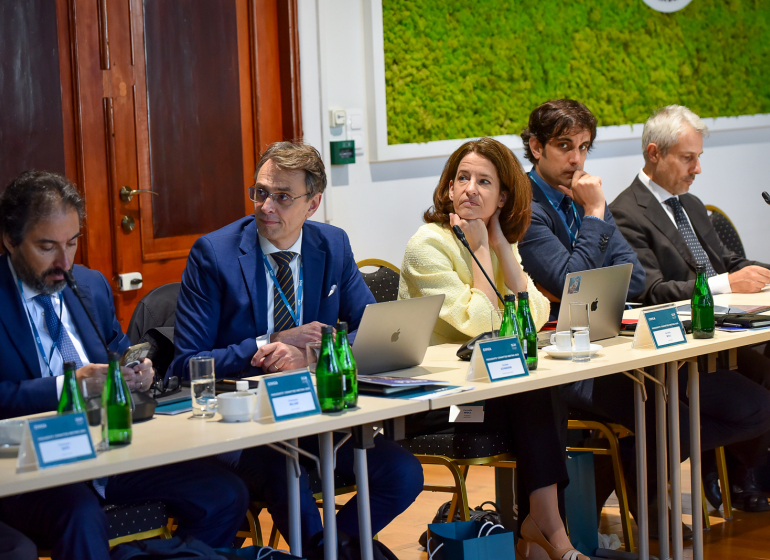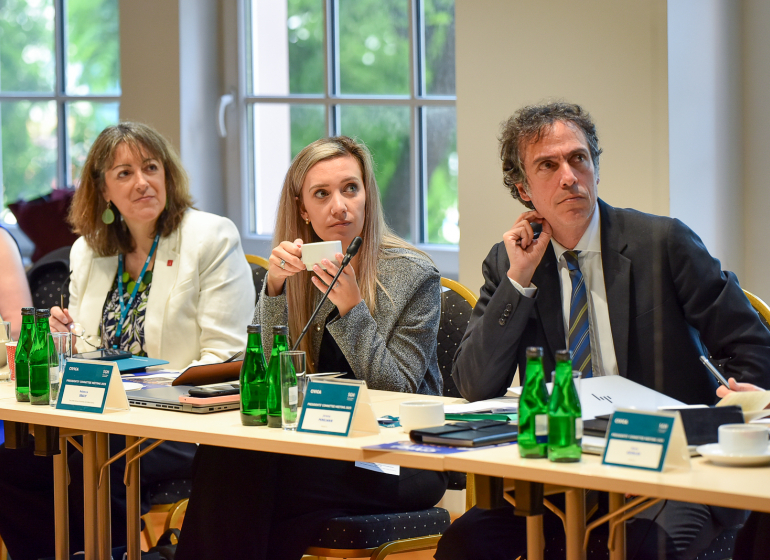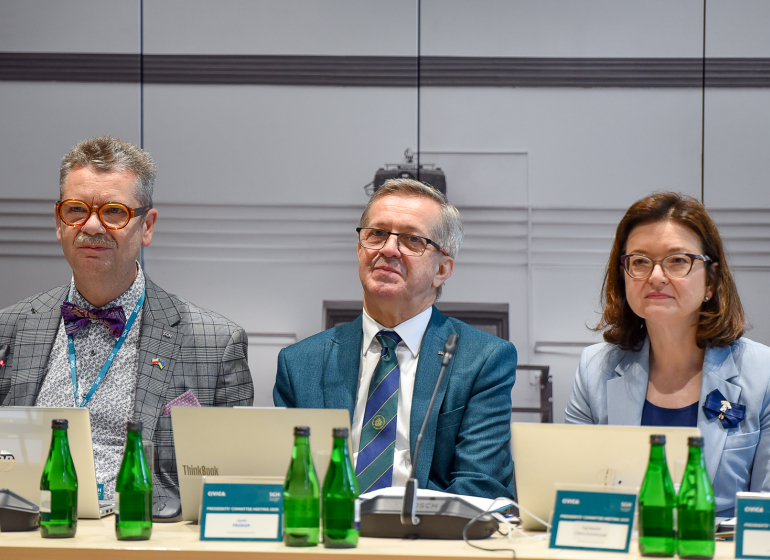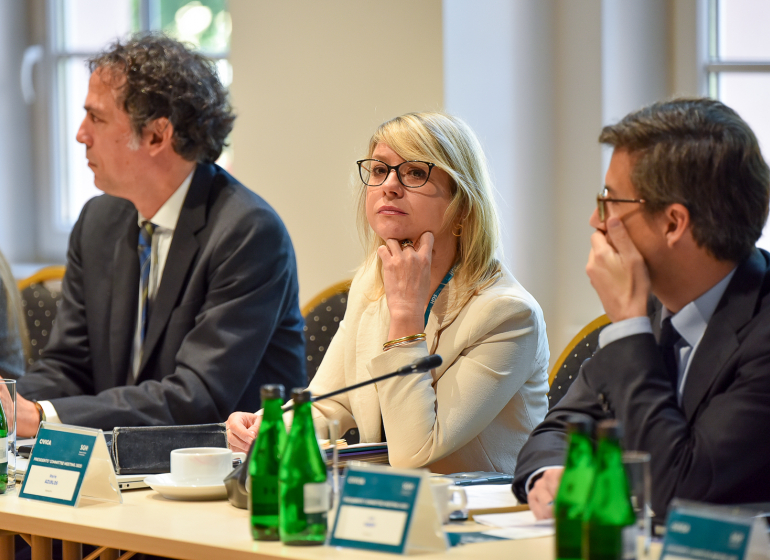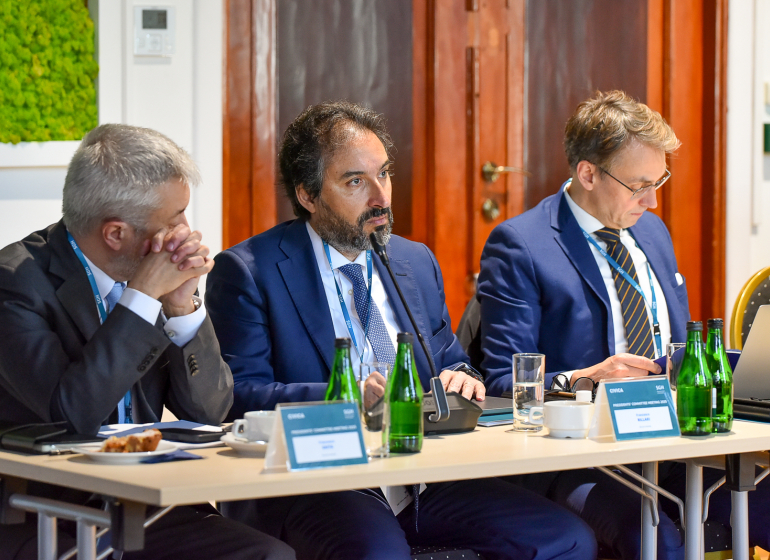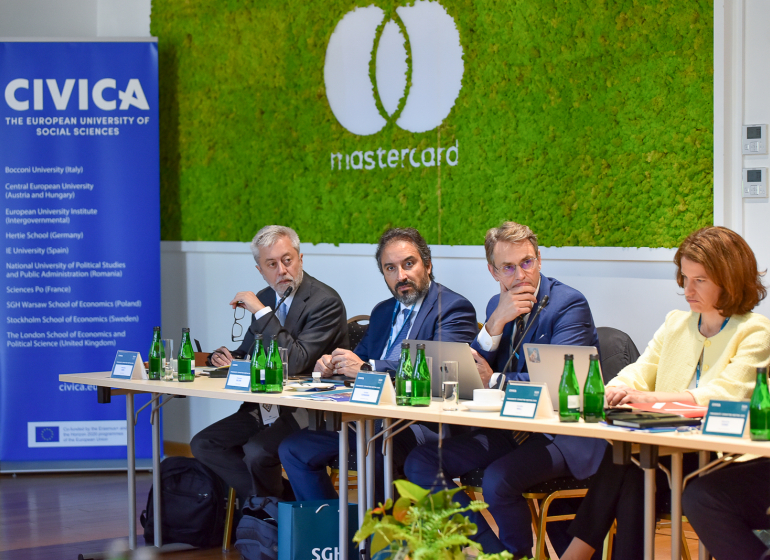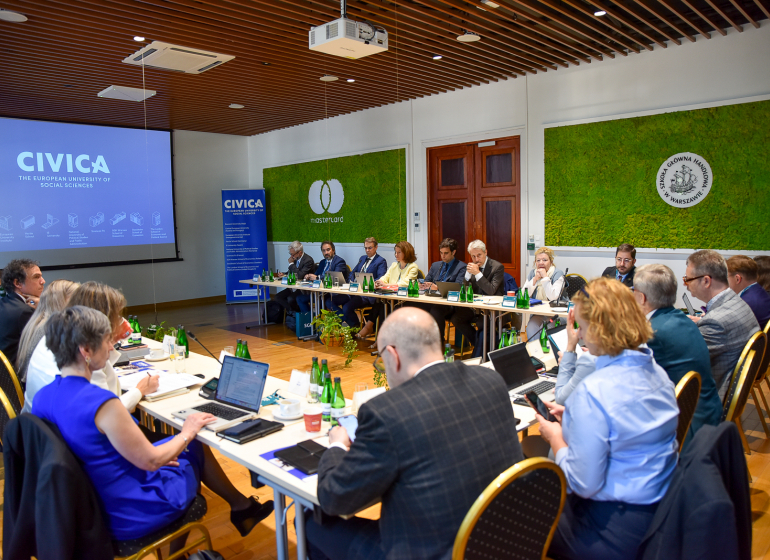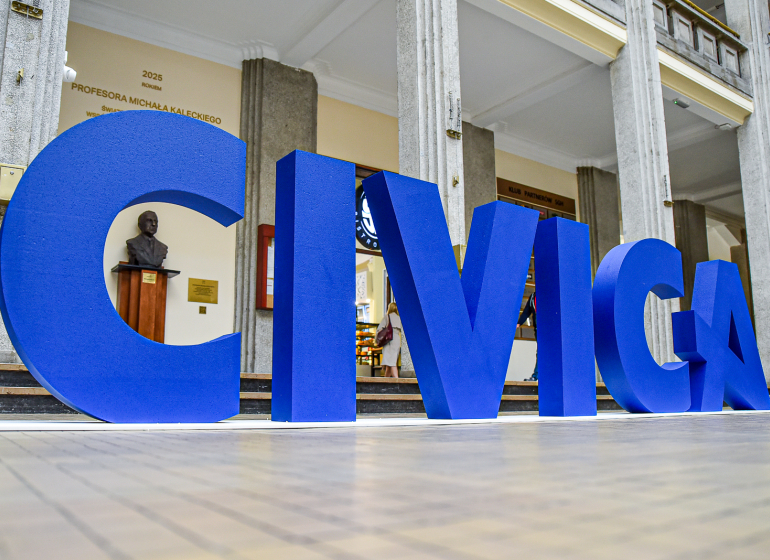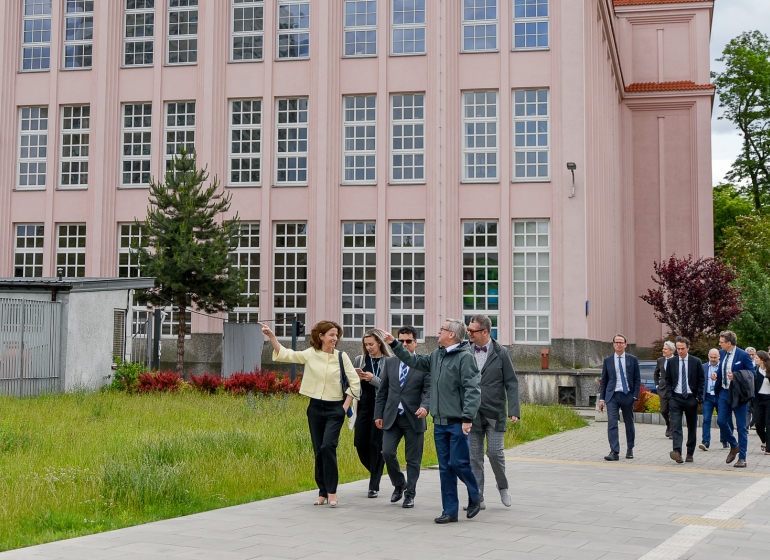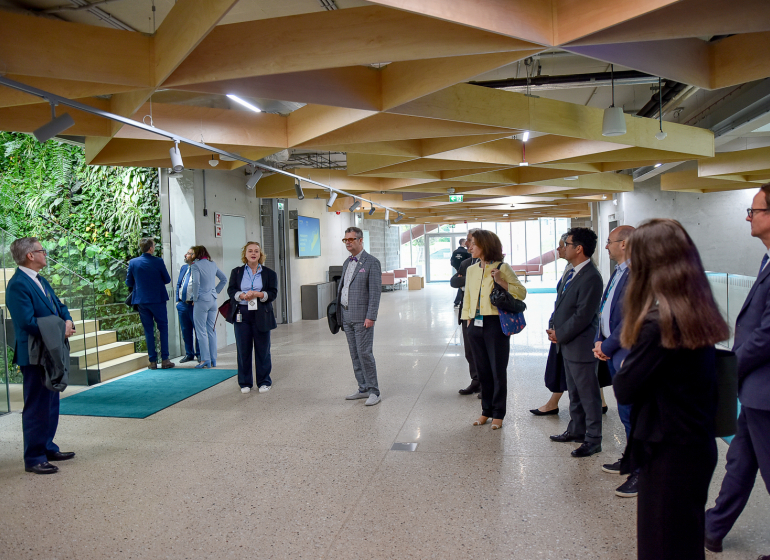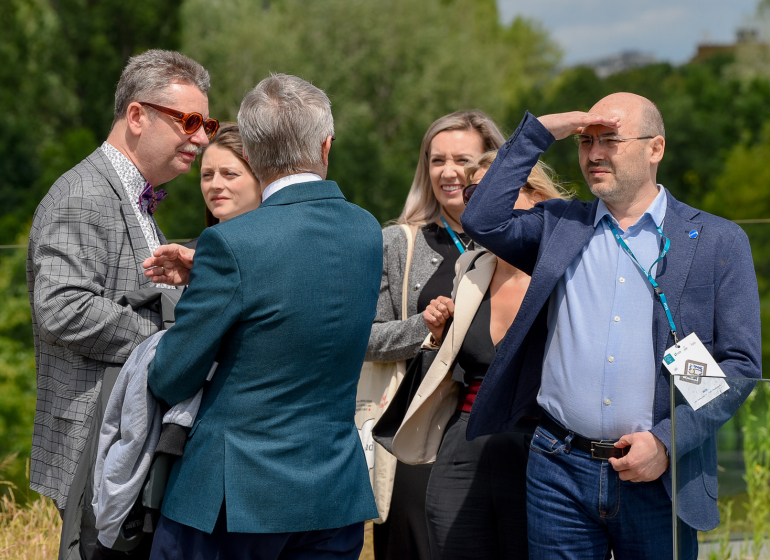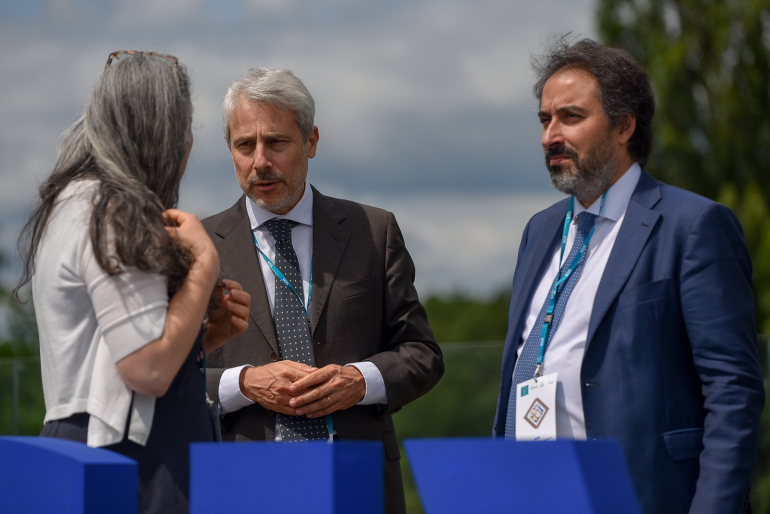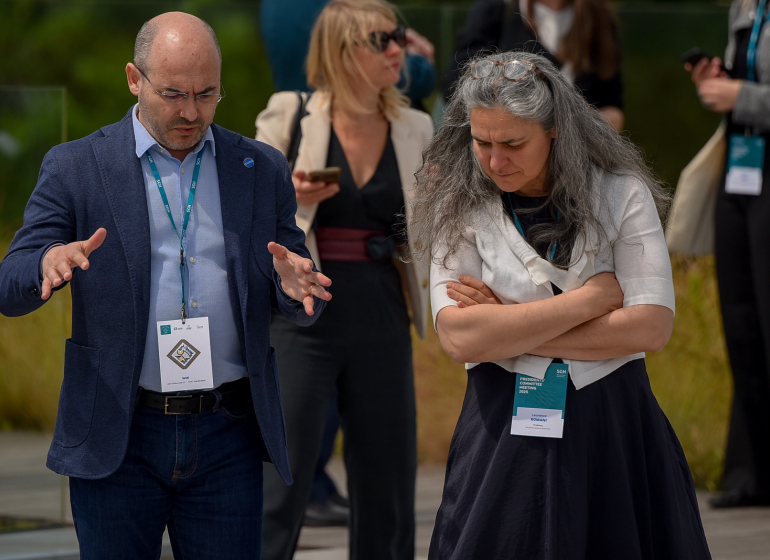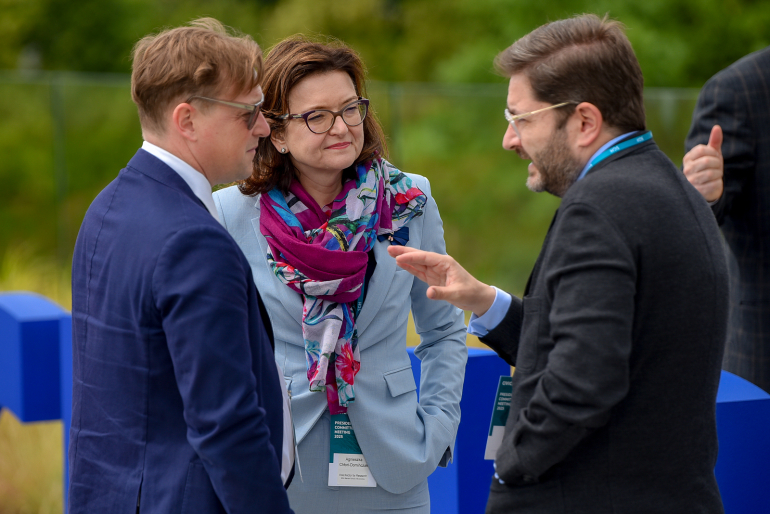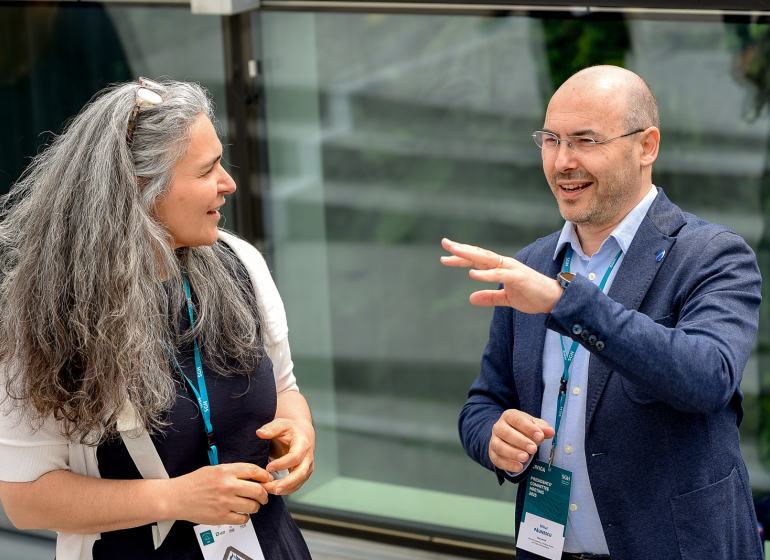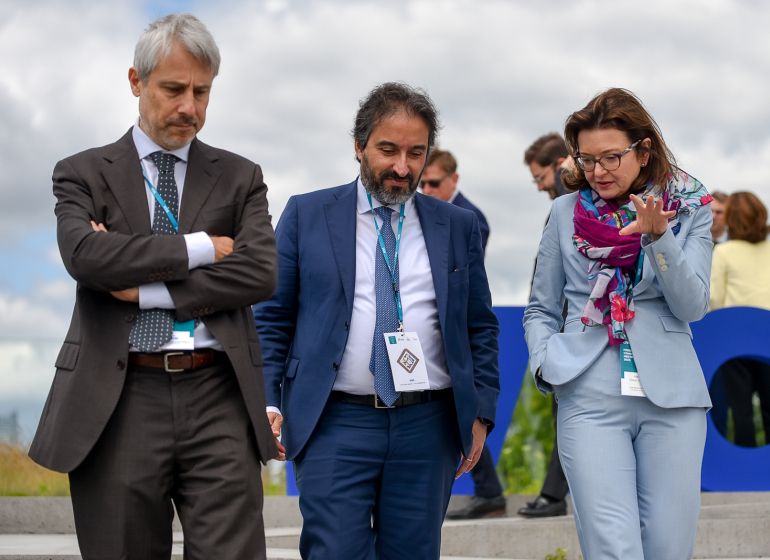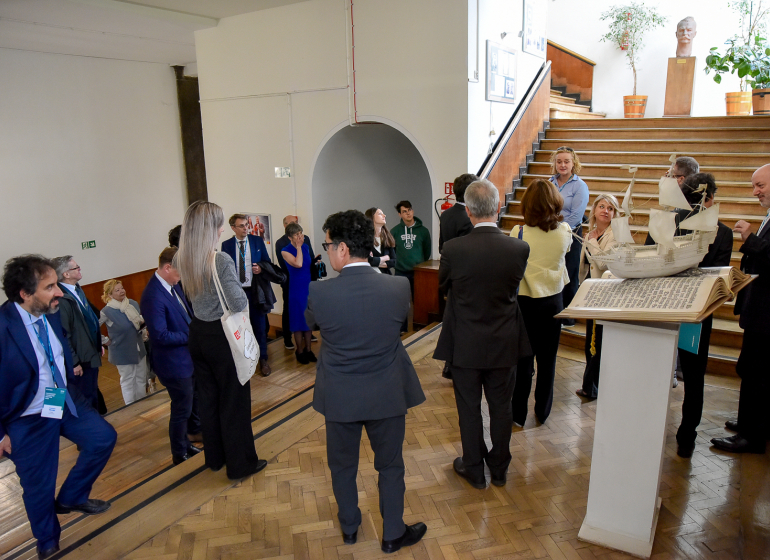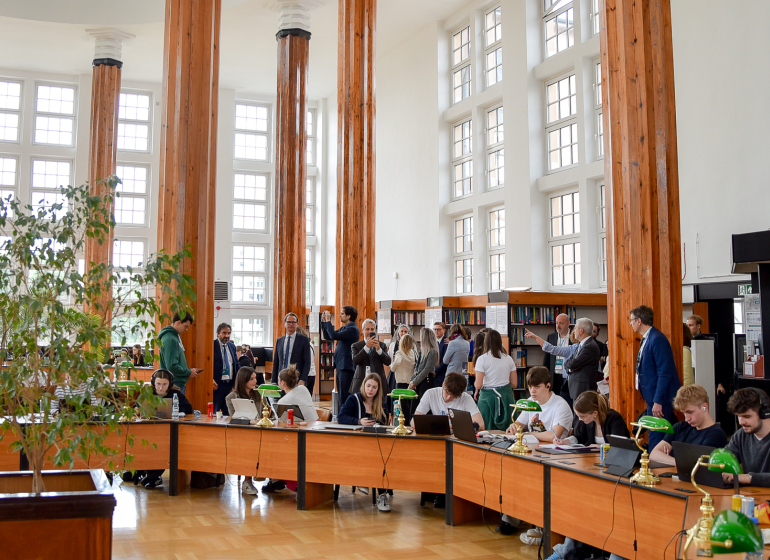CIVICA Presidents’ Committee 2025: Shaping the future of European social sciences
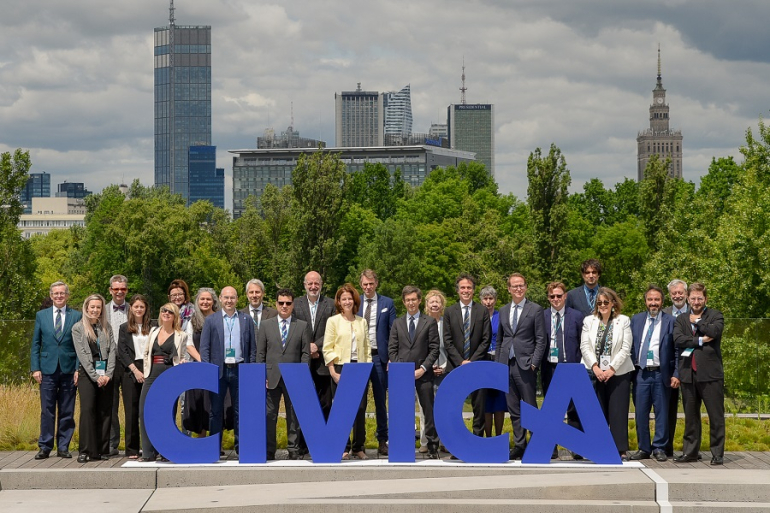
On 11–12 June 2025, SGH Warsaw School of Economics had the honour of hosting the annual CIVICA Presidents’ Committee Meeting, at the invitation of SGH Rector, Professor Piotr Wachowiak. The event provided an opportunity to reflect on the alliance’s achievements to date, discuss future strategies, and further strengthen cooperation through the exchange of best practices across education, research, and community-building initiatives within the CIVICA alliance.
This year’s meeting welcomed presidents and rectors from all CIVICA partner universities. The event brought together leaders from all member universities of the CIVICA alliance. Previous annual meetings of the CIVICA Presidents’ Committee have been held at the London School of Economics and Political Science, the National University of Political Studies and Public Administration, and IE University.
In his welcoming remarks, Professor Piotr Wachowiak, Rector of SGH, together with Professor Jacek Prokop, Vice-Rector for International Relations, emphasized CIVICA’s pivotal role in shaping the future of higher education in Europe. They highlighted the alliance as a model of dynamic, cross-border academic collaboration in the social sciences.
"We are extremely pleased to welcome all of you to our university. It is a great honour for us. I am pleased that SGH Warsaw School of Economics is hosting this meeting, which is a summary of the activities of CIVICA member universities", stressed Rector Piotr Wachowiak.
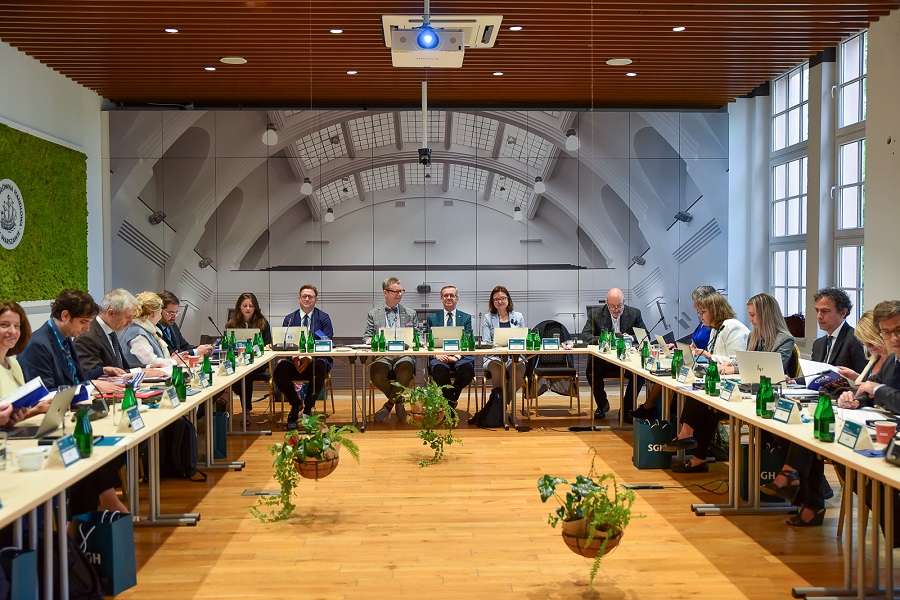
“We are meeting at a pivotal moment for our Alliance – one marked by stronger collaboration, deepening ties, and growing international ambition. The past academic year has been a period of notable progress and careful planning. As highlighted in our latest activity report, CIVICA continues to grow as a vibrant, resilient example of transnational academic cooperation in the social sciences. Our successful mid-term evaluation by the European Commission reaffirmed not only the quality and consistency of our work, but also our potential to serve as a model within the European Universities Initiative”, said Vice-Rector Jacek Prokop.
He referred to the recent CIVICA Global Forum held in Madrid in May, which brought together more than 400 people and served as a powerful demonstration of the ability of social sciences to address the world’s most pressing challenges – from climate change to democratic backsliding. The Forum's call for "interdisciplinary action" was resounding: our students and researchers need not only robust analytical tools but also a sensitivity to ethics and the ability to collaborate across disciplines, sectors, and borders.
Vice-Rector Prokop recalled CIVICA has made meaningful advances across all areas of its mission this year:
• We've enhanced digital integration through the continuous development of my.civica.eu platform and initiated impact surveys to help guide our future development.
• Mobility remains central to our identity, with over 640 students and 170 early-stage researchers engaging in exchanges, seminars, and short stays.
• Our strengthened partnerships with Ukrainian institutions, steps toward a joint governance model, and expanding global cooperation underscore our alignment with European values and global responsibility.
• Most importantly, the student voice is clearer and more impactful than ever actively shaping programs and contributing to our governance.
The Vice-Rector for International Relations stipulated that “we cannot, however, overlook the broader geopolitical and educational landscape in which we operate.” Our Alliance is more than a European project - it is a commitment to shared values: openness, evidence-based dialogue, and the freedom to tackle complex questions.
As we look toward the 2026–2028 period, supported by the continued Erasmus+ funding, we face both the opportunity and the responsibility to deepen our work. This includes reaffirming our institutional commitments, bridging mobility and integration gaps, and advancing key initiatives like the CIVICA Research Hubs and exploring the possibility of a joint degree program. We must also be ready to raise our collective voice, advocating for promoting open access to higher education, both within our Alliance and beyond. The future may be uncertain, but it is full of potential. Our shared purpose - grounded in social engagement, academic freedom, and institutional solidarity - has never been more important.
During the meeting, the CIVICA leadership discussed strategic objectives and actions under the Erasmus+ 2026–2028 programme, as well as the alliance’s long-term vision beyond 2028. Key topics included i.a. the potential legal entity of the alliance, inter-university campus development, governance and sustainability, education and research, societal outreach, and CIVICA’s global presence. The importance of social engagement was emphasized, particularly the initiatives supporting Ukraine – carried out both through SGH’s 2023–2024 projects under the NAWA Solidarity with Ukraine programme, and via CIVICA’s special budget for Ukraine-related actions.
The meeting in Warsaw was attended by the presidents, rectors, and vice-presidents of the following CIVICA universities: Francesco Billari (Bocconi), Cornelia Woll (Hertie), Remus Pricopie (SNSPA), Luis Vassy (Sciences Po), Manuel Muñiz (IE), Lars Strannegård (SSE), and Larry Kramer (LSE).
The alliance was also represented by members of the CIVICA Steering Committee and the CIVICA Secretariat, including: Executive Director Aurélien Krejbich, Francesco Saita (Bocconi), Carsten Schneider (CEU), Giacomo Calzolari and Sébastien Huber (EUI), Maria Eugenia Marin (IE), Marie Azuelos and Jeremy Perelman (Sciences Po), Susana Mourato and Emma McCoy (LSE), and Mihai Păunescu (SNSPA).
A statement has been published on the CIVICA website, saying it “unites partners in reaffirming their commitment to academic freedom, institutional autonomy and the crucial role of science in democratic societies.” The joint statement was signed by eight CIVICA partners, including SGH.
The statement was also shared on LinkedIn.
About CIVICA
CIVICA – The European University of Social Sciences brings together leading European universities committed to excellence in the social sciences. Through joint educational programmes, collaborative research, and civic engagement, CIVICA aims to build a shared inter-university European campus that empowers future generations.
CIVICA members include: Bocconi University (Bocconi), Central European University (CEU), European University Institute (EUI), Hertie School (Hertie), IE University (IE), National University of Political Studies and Public Administration (SNSPA), Sciences Po, SGH Warsaw School of Economics (SGH), Stockholm School of Economics (SSE), and The London School of Economics and Political Science (LSE).
For more information, visit www.civica.eu or follow @CIVICA_EU on social media.
Małgorzata Chromy, Director of International Centre, SGH
